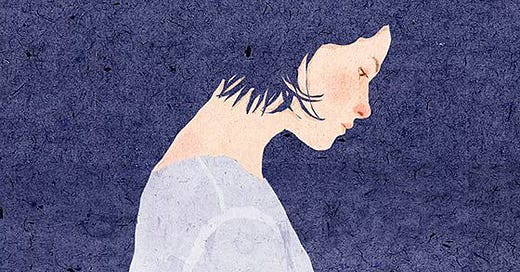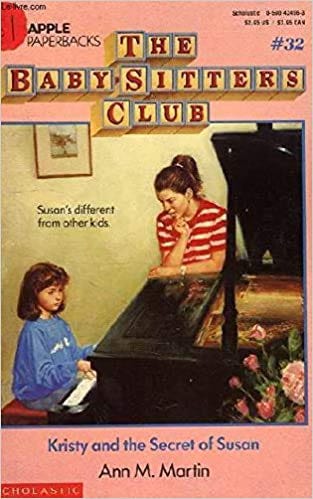My Autism Assessment, Age 40
or, "I strongly recommend that you go through the entire process"
During the first clinical interview in what has proven to be, thus far, a five-month experience, I asked the assessing doctor assigned to my autism evaluation how often adults who go in asking for an autism assessment are likely to be not autistic. What was the likelihood, I asked, that I would go through this intensely elaborate gauntlet of tests, interviews, phone calls, and questionnaires, and turn out to not be autistic?
“Well,” Dr. P said, “there are some people who go through one or two of the initial interviews, and it becomes clear to me that they have some other issue—that it’s not autism.” He leaned slightly forward, looking me right in the eye. “I strongly recommend that you go through this entire process.”
If you had asked me if, back when The Collected Schizophrenias was freshly published and I had suddenly become one of the poster children for schizophrenia, if I thought I might also be autistic, I would have looked at you with a befuddled expression and said, “What are you talking about?”
I’ve known about autism for a while. When I say this, I mean that I wrote a research report about autism when I was in the fifth grade—back in 1995—because of the Babysitter’s Club book, Kristy and the Secret of Susan (#32 in The Babysitter’s Club series by Ann M. Martin, first published in 1990). I was interested in what was to me a fascinating look into another way of being; Kristy (the tomboy jock in the series) is sent to babysit for a little girl named Susan Felder, and is confused by the fact that Susan, an eight-year-old, nonverbal child who can play the piano and sing like a savant, is not attending mainstream elementary school as her peers do. The book is decidedly (and unsurprisingly) outdated at this point, but it introduced me to autism, which was not nearly as well-known about or understood in 1995.
Nor was autism much better understood when one of my closest friends in my early college years told me about her work with autistic children using Applied Behavior Analysis (ABA). In both of these cases, autism was described to me as something that always required extensive support. I had never heard of autistics who could speak, let alone go to college or hold a job; I knew only of the dramatic, extreme cases that my friend knew about and occasional op-eds I encountered that described the frustration parents experienced with their violent autistic children. For all I knew, being autistic could only be terrible, much as my early understanding of schizophrenia indicated that being diagnosed with the schizophrenias could only be terrible.
And yet there I was in November 2023, embarking upon the beginning of my own autism assessment at age 40. My therapist had begun gently suggesting that I might be autistic two years before that; after a year of “maybe”s and “if you are”s, she began to refer to me as autistic, period. (I generally did not tell people about this, if at all.) My sister-in-law, who was one of the founders of the neurodiversity organization at her tech company, and had grown to learn a great deal about autism, told me that when the notion of my being autistic came up between her and my brother, it dawned on her that the possible diagnosis made a lot of sense. Or, as she described to me later, “When I realized that you were probably autistic, I was like—oh my God, this makes so much about you make sense.”
The more people I asked about this, the more people told me that the idea was not surprising. My mother said that she thought it was likely true; so did C, my husband. I was, of course, the person who was most surprised by the concept that I could be autistic, and so I began to read some of the books that my sister-in-law recommended to me. Enough of it applied that I could see it being true; on the other hand, not enough of it applied that I felt I couldn’t self-diagnose without feeling like a fraud. (I am all for self-diagnosis, actually, but I don’t trust my own opinion enough to go with it myself; this was underlined when I learned that I could receive an autism assessment for free under my HMO, thus removing the cost barrier.)
Before I fully committed to the assessment, however, I first reached out to my adult friends who were either autistic themselves or have autistic children (or both). One of them told me that a formal assessment leading to a diagnosis was not necessary for adults unless I was seeking accommodations, say, at a workplace. Another told me that a formal diagnosis of autism could come to be a disadvantage should I want to immigrate or if I should become involved in a court battle.
But I decided to anyway. Part of it was that I tend to put stock in diagnoses. As I wrote in The Collected Schizophrenias:
Some people dislike diagnoses, disagreeably calling them boxes and labels, but I’ve always found comfort in preexisting conditions; I like to know that I’m not pioneering an inexplicable experience… A diagnosis is comforting because it provides a framework—a community, a lineage—and if luck is afoot, a treatment or cure.
I set up the first appointment in November 2023. And the journey began to proceed—a journey that I am still on. I’ll share more in the next post, including the “gold standard” for autism assessments that included a sponge, a shoelace, and a pair of fake wire spectacles the size of my index finger. Stay tuned.







I am 39 and have self-diagnosed via the RAADS-R over the last few months. I am also exploring the possibility of a formal diagnosis (and have a kid on the spectrum and have come to understand my dad is also autistic). But at this point, whether I diagnose formally or not, I’ve understood that I’m probably autistic and the more I accept that to be true the more I come to understand myself and the rest of my life also snaps into focus. But MY GOD the grief for the undiagnosed child that’s come up for me has been very overwhelming. Anyway, you’re not alone on this journey 🩷
My favorite autism assessment is the “peer review” — my autistic friends being like, hello 👀 I see u 👀